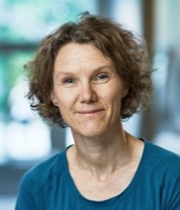Research Group Inherited Cancer (RGIC)

Group leader
RGIC focuses on all aspects of inherited cancers, including genetic epidemiology, identifying genetic variants causing cancer, describing penetrance and expressivity of genetic factors causing cancer, and monitoring effects of means to prevent and/or cure inherited cancers.
Background
During 25 years the group has participated in identifying the genes causing inherited cancer when mutated, describing their genetic epidemiology, the penetrances and expressions of the different mutations in the different genes, describing the prognoses of the inherited cancers and the effects of interventions to prevent and cure. To these ends advanced IT systems to file and merge clinical genetic activity and research have been developed and is now holding all information obtained also through managing the follow-up of the high risk groups through all these years.
Structure of current activity
We have reached a high grade of completeness of the description of genetic epidemiology of inherited cancer in Norway. For the most frequent forms of inherited cancers we may produce national results. Mostly, however, both a broader scientific team and a higher number of cases included are necessary to reach results. For these reasons we have engaged in, and are core members of, the large number of international networks characterizing the genetic variants causing cancers, and determining their effects. Having focused on prospective studies in 25 years, we are among the few international centres having prospective series to elucidate the questions without all the selections biases affecting most genetic research word-wide. The international networks issue recommendations for health care which are adopted by the Norwegian health care system. Which give us the opportunity to monitor the outcome of the health care given the high risk groups in Norway as to validate the effects of the international guidelines.
The various subprojects may be summarized as translational research determining and validating positive and negative predictive power of genetic testing for inherited cancer, and through that facilitating personalized medicine by use of these instruments.
Ongoing research:
Prospective observations of penetrances and expressions of genes causing cancer; modifiers of penetrances; effects of interventions; genes causing breast cancer when mutated; genes causing prostate cancer when mutated, genes causing malignant melanoma when mutated, inherited childhood cancers, genes causing colorectal cancer when mutated; genetic epidemiology of inherited cancers in Norway; classification of new genetic variants (VUSes) in cancer genes, identification of new genes causing cancer.
Publications and affiliations:
PUBMED-referenced papers last 5 years: Approx. 45. Completed PhD last 5 years: 2.
The members participate actively in the relevant international networks for the core projects, including INSIGHT, Mallorca group, EMMR, ENIGMA,The Human Variome project, PHGENII, IMPACT, ICPCG, Genomel.
Group
includes 6 with PhD and one PhD student.
Contact information:
Pål Møller (leader, MD, PhD, senior scientist. moller.pal@gmail.com).
